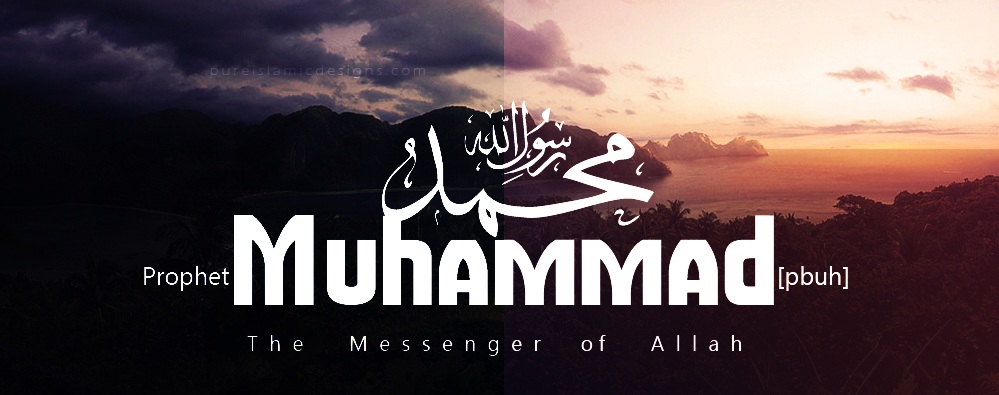It is a short study of the Prophet Mohammad's traditions concerning the knowledge and education. Referring to his teachings and hadiths it is easily understood that learning is one of the most important and essential things in Islam.

The first verse of the holy Quran, which was revealed to the prophet Mohammad (P), starts with some important commandments, according to which the prophet must "read and recite in the name of his Lord who created … and who taught by the pen, Taught man that which he knew not." [1] These verses of the holy Quran clearly express that reading, teaching, learning, writing, and knowing are the most important and valuable things that Muslims must understand. It proves that Islam is a religion of knowledge as Quran emphasizes the importance of learning and educating in its first verses.
If we study, comprehensively, the traditions of the Holy Prophet Mohammad (P) we would find that knowledge and knowledgeable people hold the most important position in Islamic tradition, that is why, the Prophet tells his follower to learn and teach in order to be the best people of his nation and followers. He says "The closest people to the high status of the prophets are the people of Jihād and Knowledge." [2]
But, contrary to these Islamic teachings, now days there are some pseudo Muslim extremist groups such as Taliban and Boko haram [3] who close the doors of schools and universities, killing the teachers and students to forbid people from learning and educating, under the name of Islam and Jihaad; Whereas the prophet (P) says "if a seeker of knowledge embraces death while he is on learning position, he is regarded as a martyr." [4]
It might be mistakenly thought that Islam prefers worship and servitude to learning and educating because worship is the most desired and recommended value in Islam. But the holy prophet Mohammad explicitly says that "If someone learns a gate of knowledge from a person to whom he trusts, it is better than one thousand rak'a or prayers performed by him." [5] He also says "He who gives my nation a hadith by which a Sunnah is established or is made a hole in a heresy, he deserves the Paradise." [6] In these two meaningful narrations the prophet explains that knowledge and knowing is much more important than worship, because according to the latter hadith the one who teach someone the right things he will absolutely inter the paradise.
The holy prophet introduces the knowledgeable people as "the torches of the earth, the prophets’ representatives, and heirs to me and the other prophets." [7] He also says that "The seeker of knowledge is wrapped under the blessing of Allah." [8] Knowledge is something that its owner and transmitter can also benefit from it even after his death as the prophet says "When a person dies his deeds are finished except for knowledge from which people benefit." [9] From these traditions of the prophet it is understood that haw much importance must be given to the knowledge and its seekers in the Islamic doctrines.
Finally it must be noted that according to the holy prophet (P) everybody must try to learn in the their child-hood and youth because "learning in this time learning likes a stone graving and learning in the oldness, is like writing on the surface of water." [10] The last point that must be mentioned here is that according to the holy prophet "The best deeds are those that are beneficial" [11] based on this hadith we can say that the best knowledge is also the knowledge which is more beneficial. So we should not learn any things rather we must focus on those sorts of knowledge which are more useful and helpful to us and to our societies.
Notes:
[1] Al-'Alaq, vers 1-5.اقْرَأْ بِاسْمِ رَبِّكَ الَّذِي خَلَقَ، خَلَقَ الْإِنسَانَ مِنْ عَلَقٍ، اقْرَأْ وَرَبُّكَ الْأَكْرَمُ، الَّذِي عَلَّمَ بِالْقَلَمِ، عَلَّمَ الْإِنسَانَ مَا لَمْ يَعْلَمْ
[2] Kanz al-Ummaal, hadith 10647. أقْرَبُ النّاسِ مِنْ دَرَجَةِ النُّبُوَّةِ أهْلُ الْجِهادِ وَأهْلُ الْعِلْمِ.
[3]See: https://simple.wikipedia.org/wiki/Islamic_State's_West_Africa_Province; https://en.wikipedia.org/wiki/Boko_Haram.
[4] Kanz al-Ummaal, v10, p 137, hadith 28693. اذا جاء الموت لطالب العلم وهو علی هذه الحالة مات فهو شهید.
[5] Wasa'el al-Shia, v27, p27. مَن تَعَلَّمَ باباً مِنَ العِلمِ عَمَّن یَثِقُ بِهِ کانَ أفضَلَ مِن أن یُصَلِّیَ ألفَ رَکعَةٍ
[6] Mizan al-Hikma, Hadith 3340. مَنْ أدَّی إلی اُمَّتِی حَدیثاً یُقامُ بِهِ سُنَّةٌ أو یُثْلَمُ بِهِ بِدْعَةٌ فَلَهُ الجَنَّةُ
[7] Nahj al-Fasaaha, hadith 2014. العُلَماءُ مَصابیحُ الأرضِ وخُلَفاءُ الأنبیاءِ ووَرَثَتی ووَرَثَةُ الأنبِیاء
[8] Awaali al-Laii ((عوالی اللآلی v1, p292. طالِبُ العِلمِ مَحفُوفٌ بِعِنٰایَةِ اللهِ
[9] Mizan al-Hikma, Hadith 14287. اذا مات الانسان انقطع عمله الا من ثلاث ... علم ینتفع به
[10] Al-Nawader of Rawani (النوادر رواندی) p132, hadith 169. من تعلم فی شبابه کان بمنزله الوشم فی الحجر و من تعلم و هو کبیر کان بمنزله الکتاب علی وجه الماء
[11] Mizan al-Hikma, Hadith 5397. خَیْرُ الأعْمالِ ما نَفَعَ



